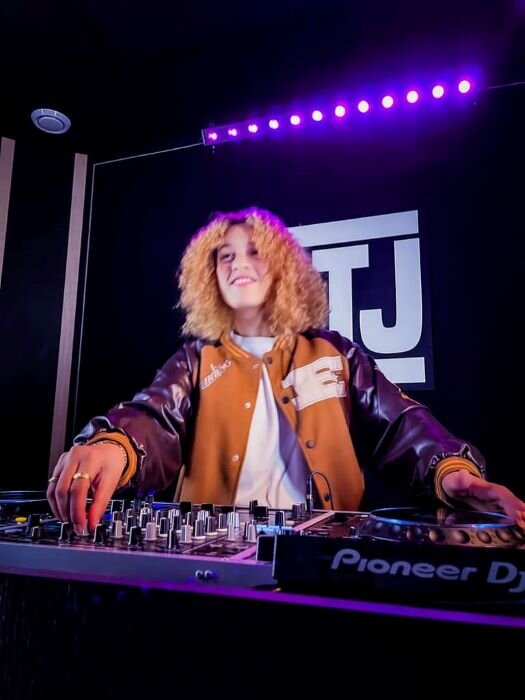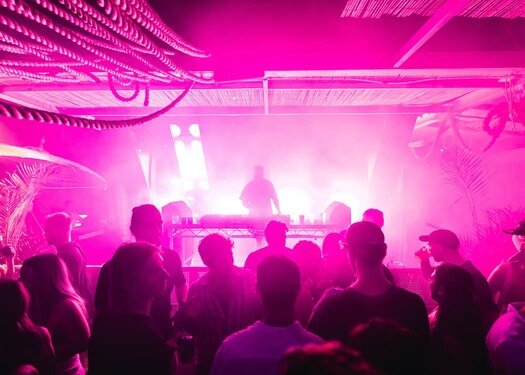Becoming a DJ: From Initiation to Conquering the Stage
The world of DJing is fascinating and diverse. Becoming a DJ is a path that attracts many music enthusiasts. Being a DJ is much more than just playing songs or your favorite tracks; it is an art that requires talent, technique, and a keen sense of listening. This ultimate guide is your ticket to enter this captivating world.
Becoming a DJ is primarily about understanding the role you play in setting the atmosphere of a party or event. Whether it's entertaining at weddings, clubs, festivals, or private events, a DJ needs to know how to create an ambiance, maintain the energy of the audience, and often act as the master of ceremonies.
It also involves staying up-to-date with the latest music trends and having a wide range of knowledge about different genres. Additionally, as a DJ, you can choose to create your own remixes and compositions, which requires knowledge in music production.
Equipment is also an essential aspect. Knowing how to use turntables, mixers, DJ software, and sound systems is crucial to becoming a professional DJ.
In this guide, we will delve deep into the essential aspects of becoming a DJ, from understanding the role to technical aspects, and career development.
If you want to practice, you can also rent a DJ studio and practice on professional equipment at a lower cost.
Challenges in Becoming a DJ
Becoming a DJ may seem glamorous, but like any career, it comes with challenges. One of the initial challenges is mastering the art of DJing. It takes hours of practice to perfect your mixing, blending, and music selection skills.
Another challenge is the initial financial investment. DJing equipment can be expensive, and it is essential to invest in quality gear to ensure good performance.
Furthermore, becoming a DJ often involves working on weekends and late hours. This can be challenging to balance with a social and family life.
Moreover, the competition is fierce. Standing out and building a reputation requires time, energy, and a well-thought-out strategy. It is important to develop a strong personal brand and know how to effectively promote your services.
Lastly, as the music world is constantly evolving, it is necessary to stay informed about the latest trends and continue to educate yourself. It is only by overcoming these challenges that you can become an accomplished DJ.
Understanding the Role of a DJ
The role of a DJ goes beyond simply playing songs. Becoming a DJ means being an artist, an entertainer, and often a technician. As a DJ, you are responsible for the musical atmosphere of an event and guiding the audience's energy.
A DJ needs to know how to select songs that appeal to the audience while respecting the theme and atmosphere of the event. This involves in-depth knowledge of different music genres and how to seamlessly mix tracks.
Additionally, a DJ must also master technical skills such as mixing, scratching, and using equipment such as turntables, mixers, and DJ software.
Becoming a DJ also means knowing how to communicate with the audience, whether through music or event hosting. A good DJ can read the mood of the audience and adapt their music selection accordingly.
Finally, in some cases, a DJ may also be involved in music production, creating their own tracks or remixes. This adds an additional dimension to the DJ's role as they are not only playing music but also creating it.
Understanding these aspects is essential to becoming a competent and respected DJ in the industry.

Exploring Different Types of DJs
In the world of DJing, there are several types of DJs, each with their own set of skills and areas of expertise. If you want to become a DJ, it is essential to know these different types in order to choose the one that best suits you.
- Resident DJ: A resident DJ works regularly in a club or bar. They are responsible for creating an atmosphere that attracts and retains the establishment's clientele.
- Mobile DJ: These DJs are often hired for private events such as weddings, birthdays, or corporate parties. They need to be versatile and capable of playing a wide variety of music to please a diverse audience.
- Radio DJ: They work for radio stations, where they mix live or pre-recorded music. Some radio DJs also act as hosts who interact with listeners.
- Turntablist or Scratch DJ: These DJs are virtuosos of the turntable and use vinyl records to create new sounds and effects by manipulating the records with their hands. It is often considered an art form.
- DJ Producer: This type of DJ creates their own music and remixes the music of others. They can play their creations during their DJ sets.
- Festival DJ: They perform in front of large audiences at music festivals. These DJs need to know how to manage the energy of a massive crowd and often have a solid reputation.
Becoming a DJ means choosing one or several of these DJing types that align with your interests and skills. It is also possible to combine several of these roles throughout your career.
DJ vs. Producer: Role Distinctions
Although the terms DJ and producer are often used interchangeably, they actually refer to two distinct roles in the music industry. Understanding these distinctions is important if you aim to become a professional in this field.
A DJ is an artist who plays recorded music for an audience. This involves selecting tracks, mixing, blending, and sometimes manipulating music live using turntables or DJ software.
On the other hand, a producer is someone who creates music. This can involve recording instruments, programming beats, arranging tracks, and finalizing music production in a studio.
However, in the modern world of electronic music, many DJs are also producers and vice versa. Many find that creating their own music is a natural way to stand out as a DJ. Similarly, many producers find that DJing is an excellent way to promote their music.
If you want to become a DJ, a producer, or both, it is essential to understand the skills and commitment required for each role.
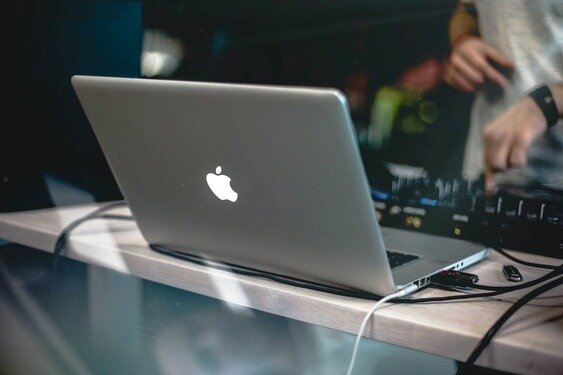
Exploring DJ Software
As a DJ looking to become professional, it is essential to be aware of the different DJ software available and choose the one that best suits your style and needs.
- Serato DJ: Widely used by professional DJs, Serato is known for its reliability and features.
- Traktor Pro: Popular among electronic music DJs, Traktor is known for its customization capabilities and high-quality effects.
- Virtual DJ: Ideal for beginners, Virtual DJ is user-friendly and offers a variety of features.
- Rekordbox: Developed by Pioneer DJ, Rekordbox is specifically designed for use with Pioneer controllers and equipment.
- Ableton Live: Although often associated with music production, Ableton is also a powerful choice for DJs, especially those who create live remixes.
Learning Basic DJing Skills
When starting your journey to become a DJ, it is essential to learn the basic skills that will form the foundation of your career:
- Beatmatching: The ability to synchronize the tempos of two tracks so that they can be smoothly mixed.
- Mixing: Harmoniously blending different tracks and creating seamless transitions between them.
- Cueing: Setting reference points in your tracks for quick access during live performances.
- Equalization: Using EQ to adjust the bass, mids, and highs of your tracks to enhance sound quality.
- Effects Usage: Learning how to use effects to add creativity and diversity to your DJ sets.
Acquiring DJ Equipment
We previously discussed the importance of DJ equipment. At this stage, it
is crucial to understand the available options and make wise choices based on your needs and budget.
- DJ Controllers: DJ controllers are a popular option as they combine turntables and a mixer into a single unit. They are often more affordable and portable.
- CDJs and Mixer: For a club-like experience, CDJs and mixers are often the standard in professional venues.
- Vinyl Turntables: For purists or those interested in turntablism, vinyl turntables are essential.
- Headphones and Monitors: Quality headphones and studio monitors are essential for accurately monitoring what you mix.
- DJ Software and Music Library: As mentioned earlier, having good DJ software and a well-organized music library is crucial.
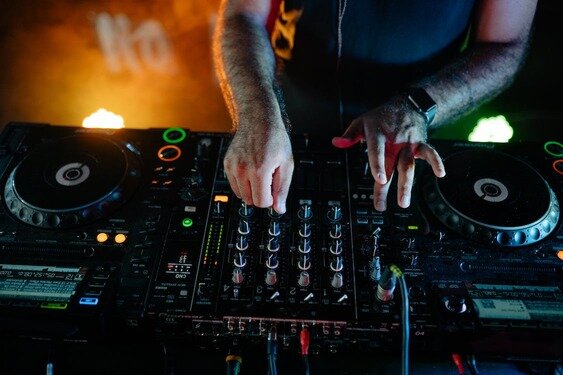
Developing Your DJ Skills
Once you have acquired the basics, it is time to develop your DJ skills. This involves going beyond the basic techniques and exploring more advanced aspects of DJing:
- Advanced Mixing Techniques: Learn more advanced techniques such as harmonic mixing, scratching, and using effects.
- Creating Remixes and Mashups: Learn how to create your own remixes and mashups to add a unique touch to your sets.
- Reading the Crowd: Develop your ability to read the mood of the audience and adjust your music selection accordingly.
- Stage Performance: Work on your stage presence and learn how to interact with the audience during your performances.
- Marketing and Branding: Develop your marketing and branding skills to effectively promote your DJ image.
- Networking: Build a network of contacts in the music industry who can help you in your career.
- Playing Live Events: Playing in front of a live audience is one of the most effective ways to gain new followers.
Recording a DJ Mix
A crucial step in becoming a DJ is recording your own mixes. This allows you not only to review and improve your skills but also to share your music with a wider audience. Here's how to go about it:
- Prepare Your Set: Before recording, choose the tracks you want to include and think about the order in which you will play them.
- Set Up Your Equipment: Ensure that all your equipment is properly set up and that sound levels are correct.
- Record with Quality: Use quality recording software or the built-in recording function in your DJ gear.
- Listen and Critique: After recording your mix, take the time to listen to it carefully. Be critical and take note of what you could improve.
- Share Your Mix: Once you are satisfied with your recording, share it on online platforms such as Mixcloud, SoundCloud, or YouTube.
Building a Following
If you want to become a recognized DJ, it is essential to build a fan base. Here are some steps to build a following:
- Create Social Media Profiles: Be present on social media platforms such as Facebook, Instagram, Twitter, and music streaming platforms.
- Engage Your Audience: Regularly interact with your audience, respond to comments, and share interesting content.
- Share Your Music: Regularly release new mixes, remixes, or tracks you have created.
- Collaborate with Other Artists: Working with other DJs, producers, and musicians can not only enhance your music but also expand your audience.
- Play Live Events: While online presence is crucial, nothing beats the power of live performances. Playing at events gives you the opportunity to showcase your skills and gain fans in person.
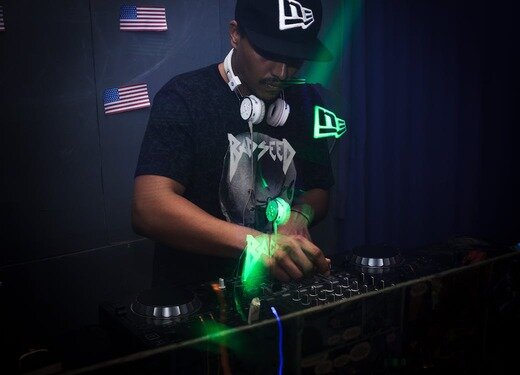
Landing Your First DJ Gigs
Getting your first DJ gigs can be a challenge, but with perseverance and effort, you can achieve it:
- Create a Demo: Record a mix that highlights your skills and music style.
- Offer Your Services Locally: Contact local bars, clubs, and event organizers. Offer to play for free or at a reduced rate to start.
- Use Your Network: Talk to friends, family, and industry contacts to see if they can help you find gigs.
- Be Professional: When communicating with venues or event organizers, be professional and show that you are passionate and serious about your DJ career.
Keys to Gaining Popularity as a DJ
Gaining popularity as a DJ does not happen overnight. It requires hard work, perseverance, and a thoughtful strategy. Here are some essential keys to gaining popularity as a DJ:
- Develop a Unique Identity: To stand out in a saturated field, it is essential to develop a unique brand identity. This includes not only your musical style but also your image, logo, and online presence.
- Create and Share Content: Today, content creation is one of the most effective ways to gain popularity. This can include mixes, remixes, performance videos, or even DJing tutorials.
- Social Media Engagement: Social media is essential for any DJ looking to gain popularity. Regularly post, interact with your audience, and use these platforms to share information about your upcoming performances and music releases.
- Networking and Collaboration: Establishing relationships with other industry professionals is crucial. Collaborating with other DJs, producers, and artists can not only improve your music but also expand your audience.
- Play Live Events: Although online presence is essential, nothing replaces the power of live performances. Playing at events gives you the opportunity to showcase your skills and gain new followers.
- Receive and Apply Feedback: Be open to criticism and feedback from your peers and audience. Use this feedback to continuously improve.
- Innovate and Take Risks: Don't just follow trends; be an innovator. Take risks with your music and performances to create something memorable and unique.
- Quality over Quantity: Instead of focusing on mass-producing content, ensure that what you create is of high quality. People recognize and appreciate effort and passion.
- Professional Management: Depending on your level of success, consider getting a manager or agent to help you with the professional aspects of your career.
In summary, gaining popularity as a DJ is a journey that requires passion, dedication, and a strategic approach. By developing a unique identity, creating quality content, engaging with your audience, and establishing strong relationships in the industry, you can continue to grow your career and reach new heights.
Financial Aspects: How Much Do DJs Earn?
One aspect to consider when aspiring to become a DJ is the potential income. The salary of a DJ can vary considerably depending on factors such as the type of DJing, location, level of experience, and popularity.
Resident and mobile DJs may have more stable income as they are often paid a fixed rate per event or evening. On the other hand, festival DJs or those performing at large events can earn larger sums, but less frequently.
DJ producers can also generate income through the sale of their music, royalties, and record contracts.
It is also important to take into account the costs associated with a DJ career, such as equipment purchase, travel expenses, and marketing. Becoming a successful DJ requires wise financial management and the ability to diversify income sources.
Building a DJ Career
Building a career as a DJ requires time, effort, and a well-defined strategy. Here are the essential steps to establish your career:
- Choose Your Niche: As mentioned earlier, there are different types of DJs. Choose the one that resonates with you the most.
- Develop Your Skills: Practice regularly, get to know your equipment, and expand your music library.
- Create a Brand: Develop a unique brand identity, including a DJ name, logo, and online presence.
- Network and Promote: Build relationships with other industry professionals, participate in events, and use social media to promote your services.
- Gain Experience: Accept small gigs at the beginning, even
if they are not well-paid, to gain experience and recognition.
- Improve and Innovate: Stay updated with industry trends, continue learning, and innovate in your art.
Becoming a successful DJ is a journey that requires patience and perseverance.
In conclusion, becoming a DJ is an exhilarating journey that requires passion, dedication, and perseverance.
Throughout this ultimate guide, we have explored various aspects of this career, from basic skills to technical aspects and career development. We have also highlighted the challenges you may face as a DJ, but remember that every challenge is an opportunity for growth.
So embark on this musical adventure, express your creativity, and share your passion with the world. With hard work and determination, you can conquer the stage and fulfill your dreams as a DJ.
If you want to practice, you can also rent a DJ studio and train on professional equipment at a lower cost.
